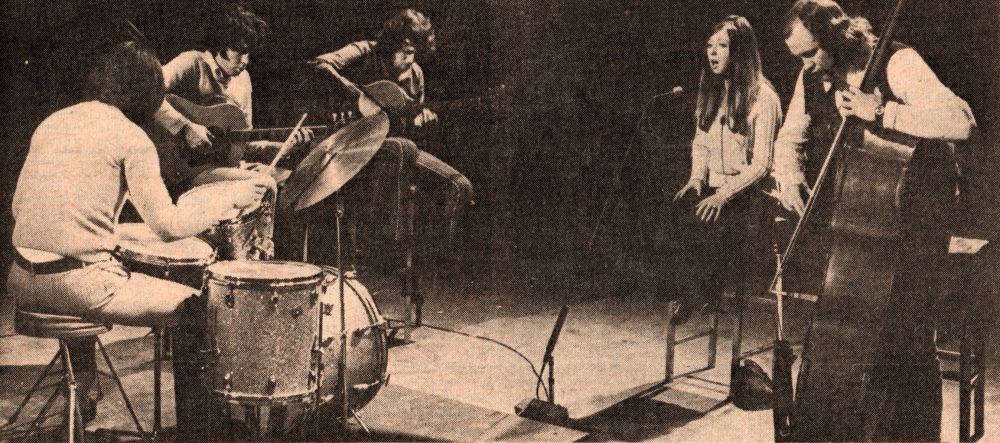

The Pentangle
In Britain, Pentangle had been very visible for a few years, heavily featured by the BBC. They did the theme for the hit television show Take Three Girls and the channel featured them in concert – a rarity for television in the UK of the late 60s, and the kind of publicity you couldn’t buy. (There's video of that program below.)
Not that it was undeserved. They eloquently straddled the line between folk and jazz thanks to the instrumentalists, who show their easy swing and fluency on the album’s opener, a version of Cyril Tawney’s “Sally Free And Easy.” And in Jacqui McShee they possessed a singer with a glowing, crystalline voice that hovers majestically over the disc. Like any band of the time, they toured a great deal, and played plenty of radio sessions. The radio pieces included here, from 1972 and 73, highlight the relaxed musical communication the band had honed over the years. A couple of oddities round out that first disc: John Renbourn’s take on “Willie O’Winsbury,” which appeared in his 1971 album Faro Annie, sounding very, very much like the version Pentangle recorded on Solomon’s Seal; interesting to compare and contrast. Then there’s the previously unreleased soundtrack to the documentary On Any Day. Curious, but necessary? Only to completists.
Most of the second disc is devoted to material from the last tour at the end of 1972, including quite a few tracks that have never seen the light of day before. With room to stretch out, the sparks fly and the guitars of Renbourn and Bert Jansch spark readily off each other. They move easily between an outstanding version of “She Moved Through The Fair,” touch on Charles Mingus and a delicately spectacular “Cruel Sister,” all with delicious fluency that never respects the boundaries of musical genre. Interestingly, there’s very little from original album. The sound quality seems far from perfect, sadly. Finally, a couple of excerpts from the soundtrack to the film Christian The Lion, only one of which hasn’t been unreleased. It’s certainly great for fans, and Colin Harper’s superb notes are probably as valuable as the music. But this really is one for the fans; no casual listener is likely to wade through all this. At times it has the feel of barrel-scraping. But no doubt the avid will snap it up.
He was a session man for popular music artists like Kate Bush, Rod Stewart and T-Rex, to name just a few off the top of my head. When I started seriously listening to the more extended idea of what 'folk music' was in the 1970s, his was a name on the credits that often led me to buy an album by an artist I had never heard of otherwise. His sensitivity and creativity set him apart in the world of music. - CF
Search RootsWorld
|